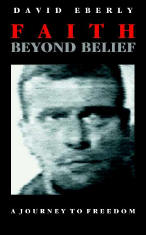
Johnston makes use of select theories to propose that such upheavals are a somewhat inevitable part of personal growth. For some, scriptural literalism simply couldn’t withstand growing practical knowledge in others, the notion of a God who could love some but not all, or in whose name violence could be justified, sat uneasily with moral precepts of love and inclusion. Ahead of such mystics, we are introduced to those poised to seek such betterment: those in whom fundamentalism met a sharp end.


Johnston’s bold pages explore the hidden dynamism of what she calls mystical practice, the destination stage of personal development. Yet Johnston asserts that their rejection of mere belief in favor of sincere spiritual development represents the precise religious maturation that our ever-complicated world requires. These aren’t the churchgoers your grandmother knew. So contends Johnston, whose Faith Beyond Belief introduces us to a host of religious practitioners, people whose countercultural faith relegates them to the margins of the devout-or so those who are the noisiest in favor of doctrine would have us believe. Religion can be damaging, while spirituality is freeing. It also points beyond the atheist/believer controversy wrecking such divisive havoc in our culture today.Stories of Good People Who Left Their Church Behind Her second set of stories are of people at the "mystic" level who can tolerate paradox and see truth and reality as multidimensional.Johnston's book will help doubters to see things in a new light as well as those who are struggling to clarify their own spiritual vision.


But, while that step is a necessary one on the spiritual path, it is only intermediate. Some of these real-life accounts are by nonbelievers others are by those among the growing numbers of the "spiritual but not religious." All are thoughtful people with too much integrity to live what they consider a lie.The stories of the nonbelievers-including an ex-Catholic, a former Mormon, and a clandestine Muslim apostate who left his community after the attacks of 9/11-show how complete confidence in human reason can lead away from literal religious interpretation. Johnston uses first-person stories as well as known spiritual authorities in describing various stages of religious growth. Faith Beyond Belief gives a much-needed voice to the "good" people who have left their church but whose spirituality continues to mature.


 0 kommentar(er)
0 kommentar(er)
